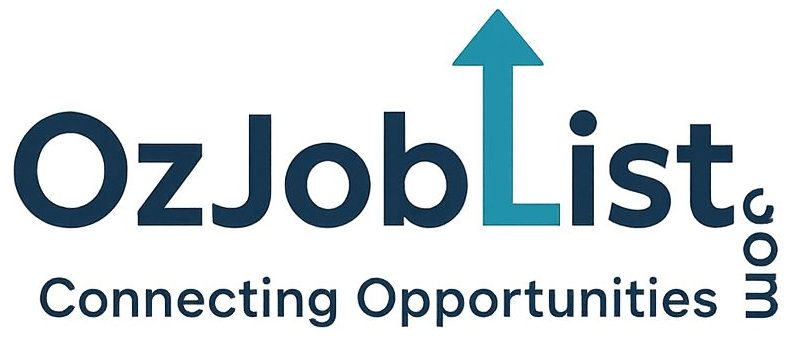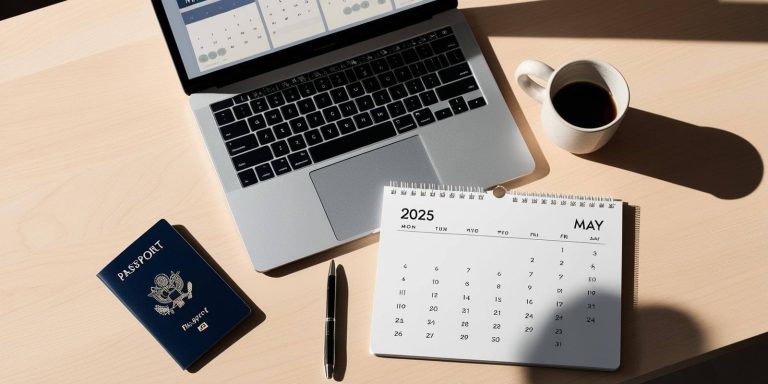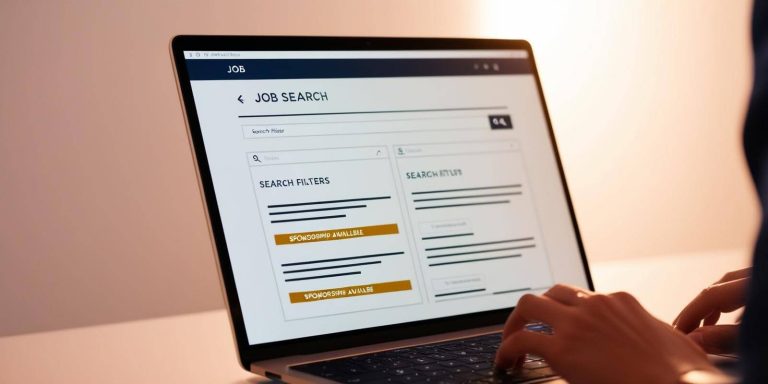Navigating the world of business sponsorship in Australia can be complex, filled with specific legal requirements and ongoing obligations. Understanding Standard Business Sponsor (SBS) requirements is crucial, especially for Australian businesses looking to employ skilled workers from overseas.
This guide aims to clarify these requirements, providing a comprehensive overview of the conditions and responsibilities involved in becoming an approved sponsor. We’ll cover everything from eligibility criteria and the application process to legal obligations, financial commitments, and monitoring duties. We will also explore the implications for both the employer and the sponsored employee, and the serious consequences of non-compliance.
By the end of this article, you’ll have a clearer understanding of Australian Standard Business Sponsor requirements and be better equipped to manage the sponsorship process effectively.
(Last Updated: April 25, 2025)
What is a Standard Business Sponsor (SBS) in Australia?
A Standard Business Sponsor is an Australian business formally approved by the Department of Home Affairs to nominate and sponsor skilled overseas workers for specific visas, such as the Temporary Skill Shortage (TSS) Subclass 482 visa.
Achieving SBS status involves meeting strict business sponsorship requirements. These ensure the company is legitimate, financially viable, and committed to upholding its sponsorship obligations, complying with Australian workplace and immigration laws. This status reflects a business’s ability to contribute positively to the Australian labour market while protecting the rights of sponsored employees.
Eligibility Criteria for Australian Standard Business Sponsorship
To become an approved Standard Business Sponsor in Australia, businesses must meet several key criteria:
- Lawful Operation: The business must be legally established and actively operating in Australia. Evidence of registration (e.g., ABN, ACN) and ongoing business activity is required. Businesses operating overseas can also apply if they seek to employ workers in Australia.
- Genuine Need: The business must generally demonstrate a genuine need to employ an overseas worker, often involving Labour Market Testing (LMT) to prove that no suitable Australian citizen or permanent resident is readily available for the nominated position.
- Good Compliance Record: The business must have a history of compliance with Australian workplace relations laws and immigration laws. Adverse information regarding compliance can negatively impact the application.
- Commitment to Training (for some sponsors): Businesses may need to demonstrate a commitment to training Australians, often satisfied by meeting specific benchmarks or paying the Skilling Australians Fund (SAF) levy when nominating a worker.
Quick Overview of Eligibility:
- Legally operating business (in or outside Australia, depending on circumstances)
- Demonstrated genuine need for sponsored workers
- History of compliance with relevant Australian laws
- Meeting training benchmarks or paying the SAF levy (at nomination stage)
Applying for Standard Business Sponsorship in Australia: Step-by-Step
The application process for Standard Business Sponsorship requires careful preparation and submission:
- Online Application: Businesses must lodge their SBS application online via the Department of Home Affairs’ ImmiAccount portal.
- Documentation: Supporting documents are crucial. This typically includes evidence of business registration, financial statements proving capacity to meet obligations, details of company structure, and proof of operating status. Ensure all documents are accurate and complete to avoid delays.
- Assessment: The Department of Home Affairs assesses the application against the eligibility criteria, verifying the business’s suitability and ability to meet sponsorship obligations.
- Approval & Agreement: Upon approval, the business receives SBS status, usually valid for five years. The sponsor agrees to abide by all sponsorship obligations outlined in Australian immigration law.
Your Legal Obligations as an Australian Business Sponsor
Holding Standard Business Sponsorship comes with significant legal obligations. Failure to meet these can lead to penalties. Key responsibilities include:
- Cooperate with Inspectors: Allow access to premises and provide requested documentation to departmental inspectors.
- Maintain Records: Keep detailed records related to sponsorship, nominations, and sponsored employees.
- Notify the Department of Key Changes: Inform the Department of Home Affairs within specified timeframes (usually 28 days) of certain events, such as changes to the business’s legal structure, cessation of employment of a sponsored worker, or changes in their duties.
- Ensure Fair Work Conditions: Ensure the sponsored employee works only in the nominated occupation and receives terms and conditions of employment no less favourable than equivalent Australian workers. Pay the market salary rate.
- Pay Costs: Cover certain costs associated with sponsorship and nomination, and do not attempt to recover these from the sponsored employee. Pay travel costs for the sponsored employee and their family to depart Australia if requested in writing.
- Fulfil Training Obligations: Meet the Skilling Australians Fund (SAF) levy requirements when lodging nomination applications.
Key Legal Responsibilities Summary:
- Uphold Australian workplace and immigration laws.
- Notify authorities promptly of relevant changes.
- Ensure fair employment terms and conditions.
- Maintain accurate and accessible records.
- Pay required costs and levies (e.g., SAF levy).
Non-compliance can result in serious consequences, including warnings, fines, barring the business from sponsoring workers, or cancellation of the sponsorship status.
Financial Requirements and Training Commitments for Australian Sponsors
While there isn’t a specific minimum turnover requirement for SBS approval, the business must demonstrate financial capacity to meet its sponsorship obligations, including paying the nominated salary. Financial documents like statements and P&L reports help establish this.
A key commitment relates to training Australians. When nominating a worker (after SBS approval), businesses must contribute to the Skilling Australians Fund (SAF) levy. The amount depends on the business’s turnover and the visa period. This levy funds skills development and apprenticeships for Australians.
Key Financial and Training Points:
- Demonstrate financial viability to meet sponsorship costs.
- Pay the mandatory SAF levy for each nomination.
Meeting these ensures sponsors contribute positively to the Australian economy and workforce development.
Supporting Visa Applications & Meeting the Genuine Position Criteria
Once SBS is approved, the sponsor can nominate specific positions to be filled by overseas workers and support their visa applications (e.g., TSS Subclass 482 visa).
A critical aspect of the nomination stage is proving the position is genuine. This means:
- The position genuinely exists within the business structure.
- The duties align with the nominated occupation as defined by ANZSCO.
- The role is necessary for the business’s ongoing operations.
- The position hasn’t been created solely to facilitate a visa outcome.
Sponsors must often provide evidence like organisational charts, employment contracts, and detailed position descriptions to satisfy the genuine position requirement, alongside Labour Market Testing evidence where applicable. This ensures the sponsorship framework supports genuine skill shortages in Australia.
SBS Renewal, Monitoring, and Reporting Obligations in Australia
Standard Business Sponsorship is typically granted for five years. Businesses wishing to continue sponsoring workers must apply for renewal before their current sponsorship expires, demonstrating ongoing compliance and eligibility.
Throughout the sponsorship period, sponsors have monitoring and reporting responsibilities:
- Keep accurate records of compliance with sponsorship obligations.
- Track the employment status and location of sponsored workers.
- Report changes (e.g., termination of employment, significant changes in duties, changes to business details) to the Department of Home Affairs within required timeframes (usually 28 days).
Key Monitoring & Reporting Areas:
- Changes in business structure or contact details.
- Updates on sponsored employees’ employment status or role.
- Ongoing compliance with salary and work conditions.
Diligent record-keeping and timely reporting are essential for maintaining sponsorship status and facilitating smooth renewals.
Consequences of Non-Compliance and Sponsorship Breaches
Failing to meet standard business sponsor requirements in Australia can lead to severe penalties imposed by the Department of Home Affairs and the Australian Border Force. Consequences may include:
- Formal warnings.
- Infringement notices (fines).
- Bars preventing the business from sponsoring workers for a specified period.
- Cancellation of the Standard Business Sponsorship status.
- Enforceable undertakings (court-ordered actions to rectify breaches).
Beyond official sanctions, non-compliance damages a business’s reputation and can severely restrict its ability to access skilled overseas talent crucial for growth. Prioritizing compliance is vital.
Conclusion: Staying Compliant as an Australian Business Sponsor
Successfully navigating the Standard Business Sponsor requirements in Australia hinges on thorough understanding and ongoing commitment to compliance. By staying informed about eligibility criteria, application processes, and legal obligations, businesses can effectively utilize the sponsorship program to fill skill gaps.
Regularly check the official Department of Home Affairs website for the most current information and regulations, as immigration law frequently changes. Prioritizing compliance ensures continued access to global talent and maintains your organisation’s integrity and reputation as a responsible sponsor.
Disclaimer: This article provides general information only and does not constitute legal or migration advice. Consult with a registered migration agent or immigration lawyer for advice specific to your circumstances.



